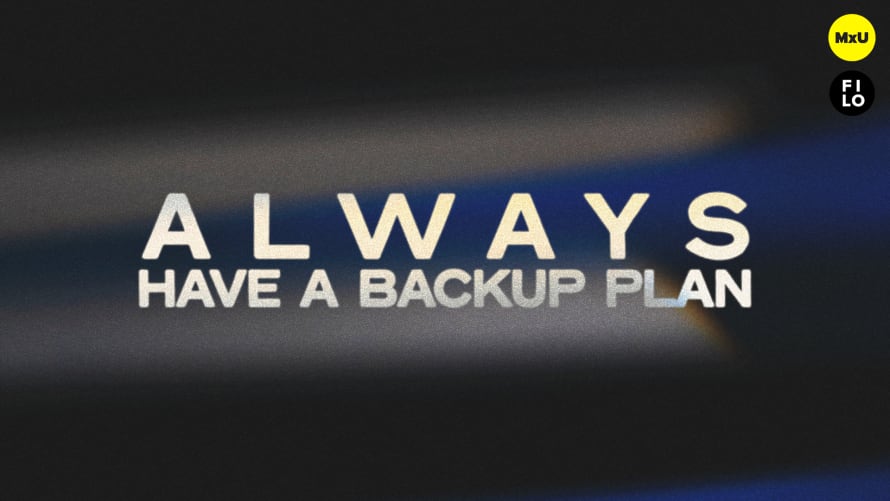
Premium
Sign up to watch Always Have a Backup Plan and gain access to 500+ more Premium MxU videos.
Team
$99 .95
Per month, billed monthly.
For worship & tech teams
$83 .29
Per month, billed yearly.
For worship & tech teams
- Full course & video library
- Add your team
- Assign training
- Automated training workflows
- Create your own courses & videos
- Multi-campus support
- Organize with groups
Solo
$19 .95
Per month, billed monthly.
Just you, full content library
$16 .63
Per month, billed yearly.
Just you, full content library
- 889+ training videos
- Full course & video library
- Add your team
- Workflows, assignments, create courses & videos
More Premium Videos
Always Have a Backup Plan
No actions available
You need both a main plan (plan A) and a backup plan (plan B) for your church services. Be prepared for unexpected issues and learn from mistakes. There are limits, however, to contingency planning.
Plan A
When preparing for services, use Plan A. It's crucial to start with a well-defined Plan A that everyone agrees upon. Make sure all are aligned with the initial plan. This will help execution go smoothly. Recognize that plans often change and be prepared to adapt.
Plan B
Plan B is essential for handling potential failures or unexpected changes. It can be redundant systems or alternative procedures for different parts of the service. Backup systems are a good example. For instance, having a wired microphone ready in case wireless ones fail. Or, having backup generators for power outages. Use Experience-Based Planning. Develop Plan B based on past mistakes.
Practical Limits of Contingency Planning
While having a Plan B is crucial, it’s impractical to have numerous backup plans (Plan C, D, etc.). Focus on a solid Plan B and be prepared to improvise beyond that. We have limited resources. We don't have time to plan for every possibility. Be comfortable with improvising and problem-solving on the spot after Plan B.
FILO (First In Last Out) is a 501(c)(3) non-profit organization built around supporting technical artists who serve the local church, designed to provide skill development, community and inspiration to equip technical artists to become effective contributors to their local church. Learn more and join the community at filo.org.
Courses
Topics
Categories
Leadership
101
Premium Videos
Nothing added









